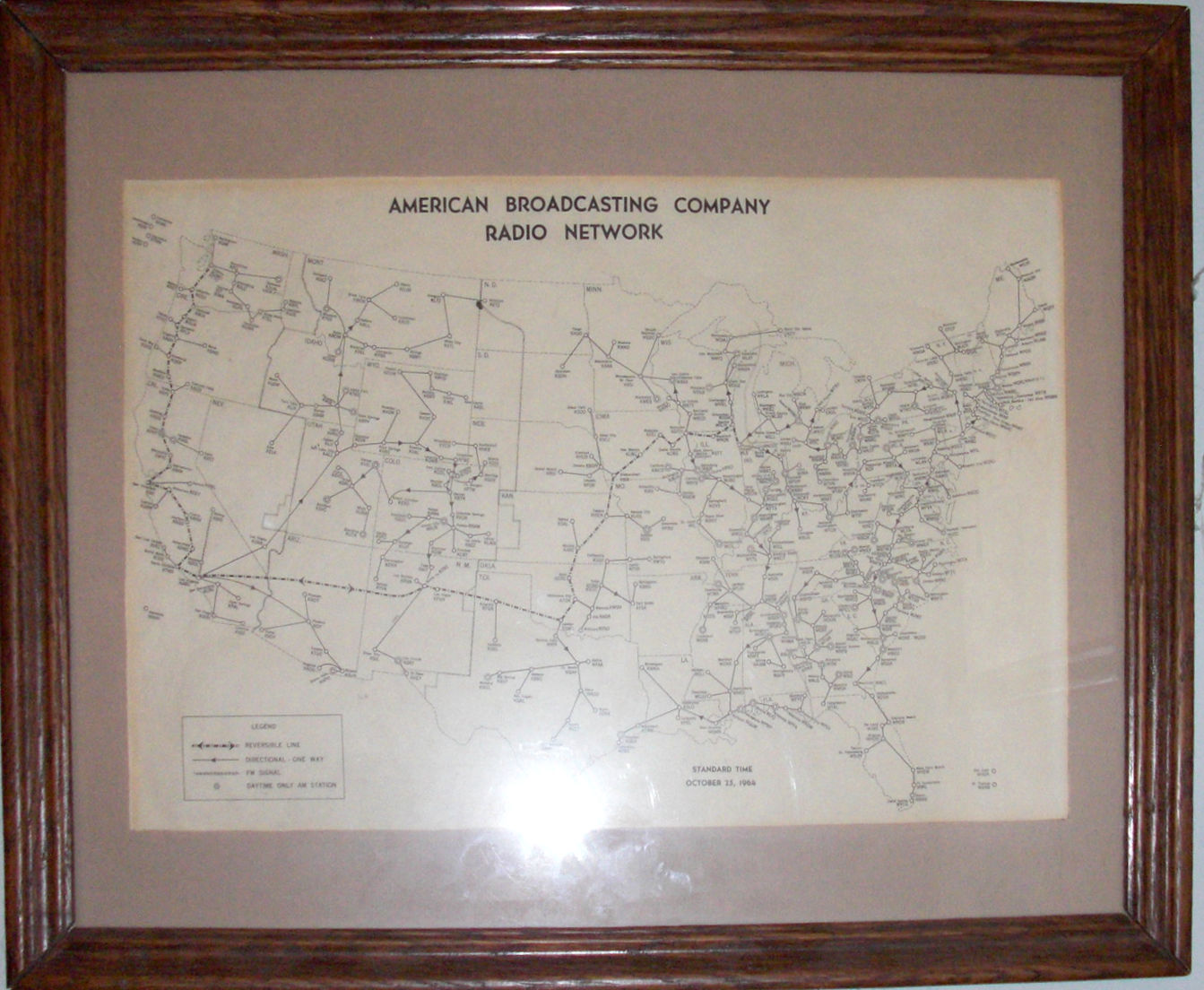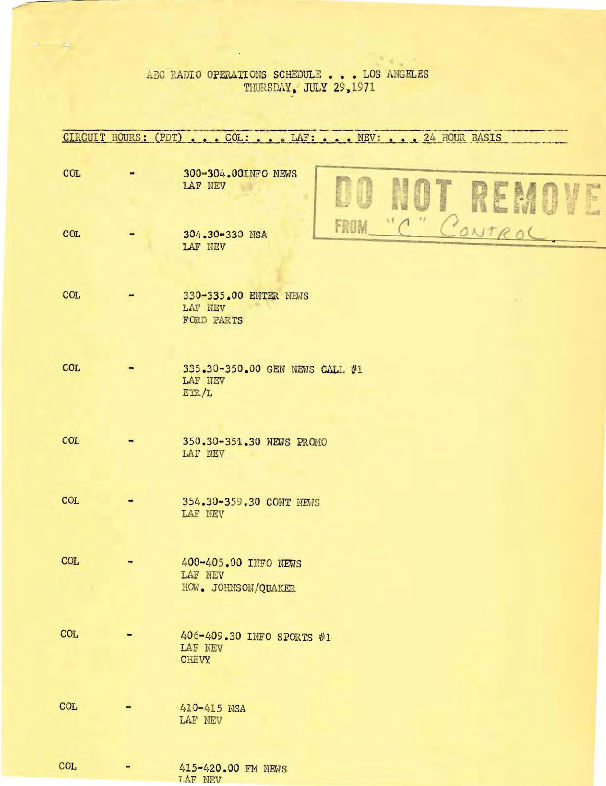America's history through the lens of 20th century broadcast media

Copyright 2018 Greenstone Media Consulting, LLC
American Broadcasting Company (ABC)
The American Broadcasting Company resulted from Federal Communictions Commission inquiry into radio network operations which concluded that the National Broadcasting Company's simultaneous operation of two radio networks, the NBC-Red and the NBC-Blue, was contrary to the public interest. The FCC adopted a rule, called the Duopoly Rule, which required NBC to divest itself of one of its two radio networks and the associated network-owned (not affiliated) radio stations. NBC chose to retain the NBC-Red network, which was then simply called NBC, and sell the NBC-Blue and its owned-and-operated stations. The Blue network was sold to Wrigley Gum Company interests in 1943 at which time the NBC-Blue was renamed the Blue Network, a name under which it operated until 1945. By then Wrigley had incorporated the American Broadcasting Company and the network was renamed the American Broadcasting Company (ABC) in 1945.

A mosts notable element of ABC's history was it ground-breaking establishment of four separate networks in 1967. To avoid conflict with the Duopoly Rule, the each of the four networks programs were fed sequentially so that no two networks were similtaneously in operation. A recognition of the increasing primacy of "format radio" (with which traditional radio networks were fundamentally in conflict) ABC's four networks each tried to tailor its programming to particular format segments of the 1960s radio industry. While Mutual bitterly opposed ABC's new effort, it was a successful undertaking for ABC.



